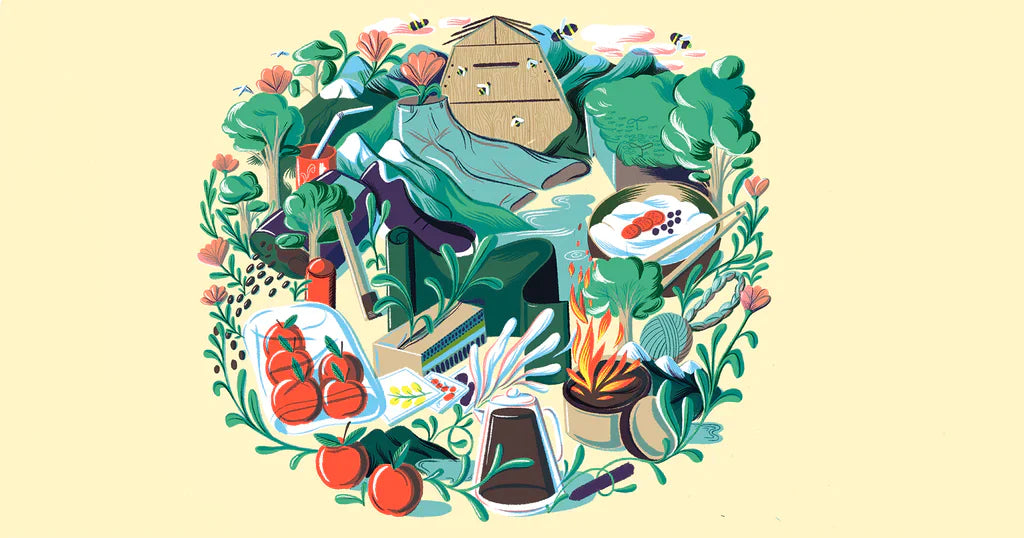
In the pursuit of a more sustainable lifestyle, embracing zero waste living has become a crucial goal for many individuals. This article explores six tried-and-true methods for achieving zero waste, focusing on the power of donating.
By incorporating reusable products, composting, recycling, reducing consumption, buying in bulk, and donating, individuals can make significant strides towards minimizing waste.
Discover practical and knowledgeable tips to adopt a zero waste lifestyle, while also contributing to the greater good through the act of donation.
Reusable Products
When striving for zero waste living, one powerful move is to opt for reusable products. This approach not only reduces waste but also promotes sustainable fashion and a zero waste kitchen.
By choosing reusable products such as cloth napkins, shopping bags, and water bottles, individuals can significantly cut down on single-use items that end up in landfills.
Sustainable fashion plays a crucial role in this movement, as it encourages the use of clothing made from eco-friendly materials and promotes the concept of repairing and repurposing garments instead of disposing of them.
Additionally, a zero waste kitchen focuses on minimizing food waste by using reusable containers, composting organic waste, and purchasing ingredients in bulk.

Composting
Composting is an effective and environmentally-friendly method for managing organic waste.
By composting, you can reduce the amount of waste that ends up in landfills, while also creating nutrient-rich soil for your garden.
There are various composting techniques, such as traditional composting bins, vermicomposting with worms, or even composting in small spaces using a Bokashi system.
Benefits of Composting
By harnessing the power of decomposition, composting offers numerous benefits for those striving to live a zero waste lifestyle.
Composting is a natural process that transforms organic waste into nutrient-rich soil, known as compost.
The benefits of composting are multifaceted. Firstly, it reduces the amount of waste that ends up in landfills, minimizing methane gas emissions and conserving valuable landfill space.
Additionally, composting provides a sustainable alternative to chemical fertilizers, enriching soil with essential nutrients and promoting healthy plant growth.

Furthermore, composting can help reduce the need for pesticides and herbicides, as compost-amended soil has higher resistance to pests and diseases.
Composting methods vary, but the most common include backyard composting, vermicomposting (using worms), and community composting initiatives.
Composting Techniques Explained
One effective technique for composting is to utilize a combination of green and brown materials. Green materials, such as grass clippings, fruit and vegetable scraps, and coffee grounds, are rich in nitrogen. Brown materials, such as dried leaves, straw, and shredded paper, are high in carbon.
The nitrogen in green materials helps speed up the decomposition process, while the carbon in brown materials provides structure and aeration. To create a successful compost pile, it is important to maintain a balance between the two.
It is also essential to turn the pile regularly to ensure proper airflow and decomposition. Composting offers numerous benefits, such as reducing landfill waste, improving soil fertility, and reducing the need for chemical fertilizers.
Recycling
Recycling plays a crucial role in achieving zero waste living by transforming used materials into new products. By diverting waste from landfills and reducing the need for new raw materials, recycling helps conserve natural resources and reduce pollution.
Here are some practical recycling tips to help you on your zero waste journey:

- Familiarize yourself with local recycling facilities and their guidelines to ensure proper disposal of recyclables.
- Rinse out containers before recycling to avoid contamination.
- Separate different types of recyclables, such as paper, plastic, glass, and metal, to maximize recycling efforts.
- Consider recycling options for items like electronics, batteries, and household hazardous waste, which require special handling.
- Reduce the use of single-use items and opt for products with recyclable packaging whenever possible.
Reducing Consumption
Reducing consumption is an essential step towards achieving zero waste living and creating a more sustainable future. Embracing a minimalist lifestyle can help individuals prioritize their needs over their wants, leading to a reduction in the consumption of material goods. By consciously choosing to only purchase items that are necessary and of high quality, individuals can significantly decrease their overall waste output.
Additionally, secondhand shopping can be a powerful tool in reducing consumption. Buying pre-loved items not only reduces the demand for new products but also gives existing items a longer lifespan, preventing them from ending up in landfills. This approach allows individuals to save money while still enjoying a wide range of goods, contributing to a more sustainable and mindful way of living.
Buying in Bulk
Implementing a strategy of bulk purchasing is a practical approach to reducing waste and promoting sustainability. Buying in bulk allows individuals to minimize packaging waste and save money in the long run.
Here are some tips for successful bulk shopping:
- Look for zero waste stores in your area that offer a wide range of products in bulk. These stores often encourage customers to bring their own containers or offer reusable options.
- Bring your own bags, jars, or containers to the store. This eliminates the need for single-use packaging and allows you to have more control over the quantity you purchase.
- Plan your meals and make a shopping list before heading to the store. This helps to avoid impulse purchases and ensures that you only buy what you need.
- Consider purchasing non-perishable items, such as grains, legumes, and dried fruits, in larger quantities. This reduces the amount of packaging waste generated over time.
- Share bulk purchases with friends or family members to minimize waste and save money.
Donating
One effective way to minimize waste and contribute to a more sustainable lifestyle is through the act of donating.
Charitable giving is not only a powerful move but also a practical solution to reduce waste. When we donate our belongings that we no longer need or use, we extend their lifespan and prevent them from ending up in landfills.
By giving these items a second chance through secondhand shopping, we reduce the demand for new products and save valuable resources. Donating also allows us to support organizations and causes that align with our values, making a positive impact on society.

Additionally, it promotes a sense of community and helps those in need. So, the next time you clean out your closet or declutter your home, consider donating as a way to live a zero waste lifestyle and make a difference.
Frequently Asked Questions
How Can I Encourage My Friends and Family to Adopt a Zero Waste Lifestyle?
To inspire others to live a zero waste lifestyle, share practical tips for making sustainable choices in everyday life. Emphasize the benefits of reducing waste, such as saving money and protecting the environment. Lead by example and provide resources for further education.
Are There Any Resources or Organizations That Can Help Me Find Local Donation Centers?
Local donation centers can be easily found through online donation directories, which provide comprehensive lists of organizations in your area. These resources are helpful for individuals seeking to donate items and contribute to their community in a meaningful way.
What Are Some Creative Ways to Repurpose Items That Cannot Be Donated?
Upcycling ideas and repurposing techniques provide creative ways to give new life to items that cannot be donated. By transforming them into something useful or decorative, we can reduce waste and contribute to a more sustainable lifestyle.
Can I Donate Items That Are Broken or Damaged?
Repurposing broken items and repairing damaged items before donating them can be a powerful move towards zero waste living. By finding creative ways to give new life to these items, we can reduce waste and contribute to a more sustainable future.
How Do I Ensure That My Donated Items Are Being Used Effectively and Not Ending up in a Landfill?
To ensure effective donation and reduce waste through upcycling, it is important to research and choose reputable organizations that have clear guidelines for item acceptance and distribution. Regularly following up and donating to local community initiatives can also help guarantee your items are being used effectively.
 Business & FinanceHealth & MedicineTechnologyLifestyle & CultureScience & EnvironmentWorld NewsPrivacy PolicyTerms And Conditions
Business & FinanceHealth & MedicineTechnologyLifestyle & CultureScience & EnvironmentWorld NewsPrivacy PolicyTerms And Conditions
